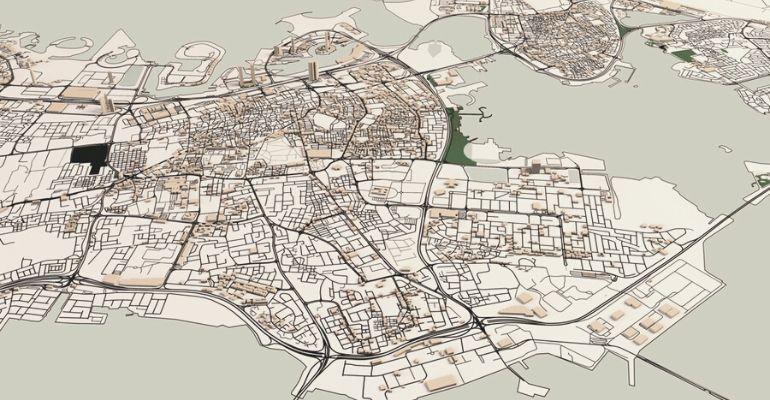One of Bahrain's most strategic mega infrastructures, Bahrain Metro, has kicked off with phase one of the project covering 20 elevated stations in key parts of the kingdom.
The multi-million project's first phase will witness the development of a 109km rail transit network with two lines (29 km) with 20 stations.
Details were announced by Bahrain's Transportation and Telecommunications Minister Mohammed Al Kaabi who told legislators late last month that the ambitious project's first phase is underway.
"The first phase of the project will be tendered as a Public Private Partnership (PPP) with a contract period of 35 years on design, build, finance, operate, maintain, and transfer (DBFOMT)," said Al Kaabi.
"The project is crucial for the transportation network and aimed to ease traffic congestion and further protect the environment."
SEVEN BIDDERS QUALIFIED
Al Kaabi revealed that seven consortiums have qualified, and the tender for the selected developer will be granted after strict scrutiny and approvals from government entities.
Details on Bahrain's Tender Board's prequalification register list the firms specialised in mass rapid transit, including firms from India, China, France, and Italy.
These include consortia such as the China Harbour Engineering Company Limited, China Railway Construction Corporation International Limited, and China Railway Group Limited.
Two Italy-based companies that have expressed interest are Hitachi Rail STS and WeBuild, while two French companies participating are Five Capital and Alstom Transport.
Indian companies listed are Larsen and Toubro Limited and Delhi Metro Rail Corporation Limited.
TWENTY METRO STATIONS PLANNED
Al Kaabi, in his response to a question from an MP, did not reveal the project cost, but in 2018 when plans to develop the 109km driverless metro system in phases were announced the estimated cost was around $2 billion.
The latest announcement by the minister also sheds light on plans to purchase more than 20 plots as part of the project to construct an elevated urban transit system on those properties.
The 20 stations on the new route will boost connectivity to residential, commercial, and leisure areas.
Bahrain Metro will include a total of four lines, of which the first two lines, Red and Blue, will be built in the first phase.
POTENTIAL DEVELOPMENT IMPACTS
“I do see that the proposed Bahrain Metro's 20 stations will have a positive impact on real estate development in Manama and the locations where the elevated mass transit corridors will be built,” says Ali Faqih, an analyst focusing on real estate at the Bahrain Centre for Strategic, International and Energy Studies (Derasat).
Faqih thinks the metro will provide a convenient and efficient mode of transportation for residents and visitors, boosting the demand for properties nearby.
“This increased demand will likely lead to a rise in property values and rental prices, benefiting property developers and owners,” he says.
“Additionally, the metro's construction and operation may create job opportunities, further fuelling economic growth in Bahrain.”
EXPECTING LARGE RIDERSHIP
The planned ridership of the Bahrain Metro in the initial years of operation is expected to be around 200,000 per day, as it expects motorists to shift to the new rail system.
This is crucial with Bahrain's projected population to grow from more than 1.6 million this year to 2.1m by the year 2032, according to a government forecast.
The project is in line with the tiny Gulf state's 2030 Economic Vision and further cements the 'Gateway to the Gulf' position as the Bahrain Metro will link to the 2,177km GCC railway network via the King Hamad International Terminal in Al Ramli area.
Neighbouring Gulf countries such as Dubai, Saudi Arabia, and Oman have already undertaken ground-breaking transformations in the transportation sector, including rail and metro mega projects.
TRANSPORTATION SECTOR SPURS GROWTH
These projects are expected to go full steam as energy and tourism earnings recover post-pandemic with more than 50 mega projects covering education, health, housing, and other sectors planned in Bahrain.
Data for Q3 2022 released by Bahrain's Finance and National Economy Ministry showed that economic growth was seen in most non-oil sectors Year-on-Year (YoY), of which Transportation and Communications achieved the second highest growth rate at 8 percent in real terms.
The Bahrain Metro project was first proposed and announced by the Cabinet in 2008, but the brakes were put on due to the global financial crisis, followed by crash in oil prices in 2020 and other regional developments including the pandemic that all led to the delay in the project


